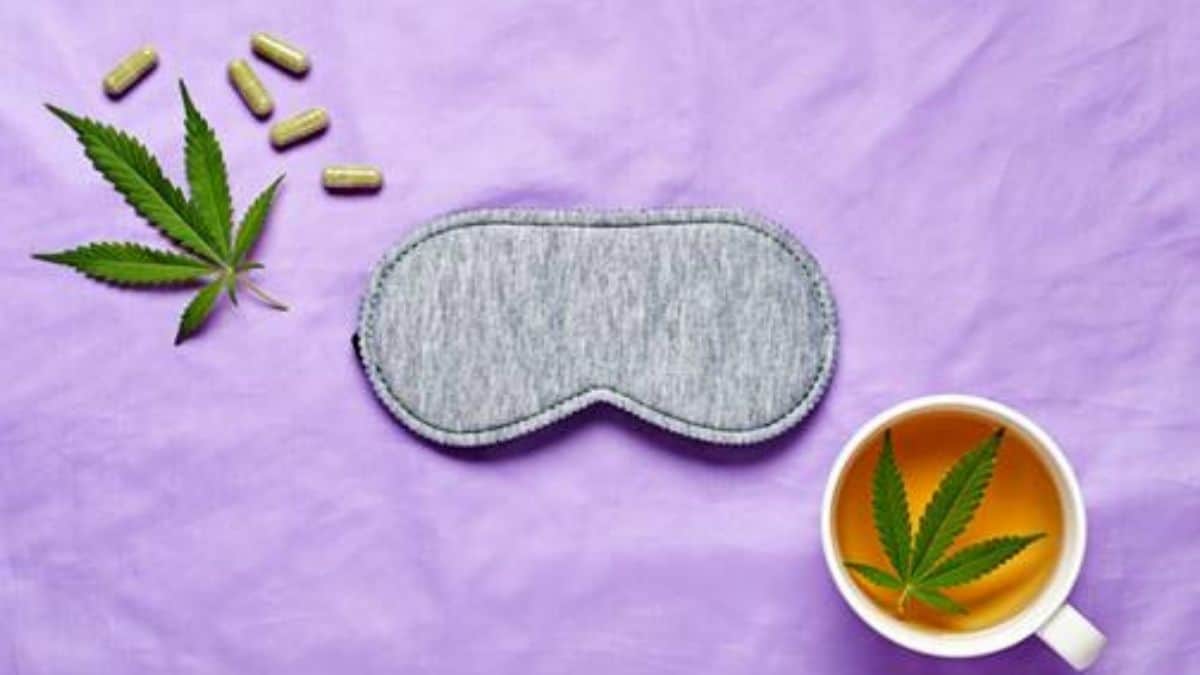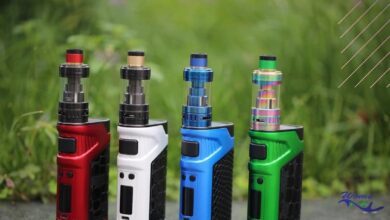Can Cannabinoids Help You Get a Good Night’s Sleep?

A night of quality sleep for the average adult should be anywhere from seven to nine hours and four to six sleep cycles. But according to statistics from the CDC, at least 35 percent of American adults aren’t getting the sleep we need to be happy, functioning people.
If you’re one of these folks, don’t worry. Help is out there, and it comes courtesy of the hemp plant!
This article will explore how to use cannabinoids such as CBD (cannabidiol) and CBN (cannabinol) for sleep. But first, we’ll lay the groundwork with a quick look at some common sleep problems and how cannabinoids work in your body.
Common Sleep Issues and Disorders
Putting a name to your problem can be beneficial. And when you name it, you can find out more information about it. This will allow you to make an informed decision about when and how to use cannabinoids to find relief.
Here’s a quick rundown of some of the most common sleep disorders, according to the Sleep Foundation:
- Insomnia is the recurring difficulty of falling asleep or staying asleep. As a result, people who suffer from insomnia also experience extreme daytime fatigue, drowsiness and brain fog.
- Sleep apnea is a sleep-related breathing disorder where there is a blockage in the upper airway. Obstructive sleep apnea is caused by physical obstructions, while central sleep apnea happens when the brain stops talking to the muscles that control breathing, leading to choking. Obesity is a common risk factor in both.
- Narcolepsy is when a person suffers an unfightable urge to fall asleep during the day no matter where they are, also known as “sleep attacks.” Regardless of how much sleep was had the night before, this condition feeds into somnolence.
- Restless leg syndrome is a sleep-related movement disorder. It’s characterized by pain or discomfort in the legs resulting in an irresistible urge to move them when they should otherwise rest.
- Parasomnias are a cluster of varying sleep behaviors that can manifest before falling asleep, while sleeping or in that dozing period between being awake and sleeping. Some you might be familiar with are night terrors, bedwetting and sleepwalking. There are some more unique ones like exploding head syndrome and catathrenia (sleep-related groaning).
There are many causes and sources of sleep disorders. Some are genetic, while others are related to medications being taken. Stress is a commonly cited reason and trigger of sleep disorders, either acting as the root cause or simply arousing the potential. And then, of course, bad habits like late-night meals, excessive screen time, and alcohol use can all play a role as well.
Introducing The Dream Team: Cannabinoids
Cannabinoids are naturally occurring compounds found in hemp and marijuana plants. There have been over a hundred cannabinoids cataloged by researchers so far, with more discoveries on the way, we’re sure.
Perhaps the most famous cannabinoid today is CBD, which was the second cannabinoid to be isolated, all the way back in 1940. But it was the passing of legislation in 2018 that legalized industrial hemp production across the country that has thrown CBD into the spotlight. It is the dominant cannabinoid present in hemp plants and is most typically associated with calming, relaxing and anti-anxiety effects.
However, the first cannabinoid to be isolated was actually CBN in the late 19th century. And until recently, it hasn’t really received much attention. Essential for us here is that CBN can have sedative properties.
Other well-known cannabinoids include THC (tetrahydrocannabinol), the famous psychoactive cannabinoid, and CBG (cannabigerol), the mother of all cannabinoids.
All cannabinoids function by interacting with particular receptors in your body, most of which are contained within your endocannabinoid system (ECS). There are two types of receptors in this unique cell-signaling network. They’re called CB1 and CB2 receptors and are mainly present in the central nervous system and immune cells. By connecting with these, cannabinoids like CBD and CBN can produce beneficial effects. But can they help with better sleep?
What Does the Research Say?
Researchers have been working closely with CBD and its effects on sleep as of late. For example, 66.7 percent of patients in one study reported better sleep scores after a month of using CBD as adjunctive sleep therapy. Additionally, a review of current literature and publications noted that CBD helped patients stay asleep who generally suffered bouts of wakefulness due to pain. To add to this, an independent literature review found evidence that CBD may hold promise for REM sleep behavior disorders and excessive daytime sleepiness.
As for CBN, we’re still waiting on more research. But what we do know is that when cannabinoids can work together, they have synergistic benefits called the entourage effect. And in this way, CBD and CBN may team up to provide a more restful night of sleep.
How to Use Cannabinoids for Sleep
These days, you’ll be able to find CBN oil reasonably easily. It’s generally a 1:1 mixture with CBD. This tincture can be taken 30 minutes before bed to help give you that extra sleepy effect you’re after.
If you prefer, you can also opt for regular CBD oil, but we still recommend full spectrum. This is a form of CBD that preserves all the naturally occurring cannabinoids and terpenoids in the hemp plant that produce the beneficial effects you’re after – though it does include up to 0.3 percent THC. If you’re in favor of something THC-free, check out broad-spectrum CBD oil instead. And if you really have your heart set on CBD and nothing else, look for products that are labeled CBD isolate.
CBD oil can be taken the same as CBN oil, about 30 minutes before bed if you’re looking to use it for sleep. However, if you’re after calm alertness and freedom from daytime brain fog or anxiety that might later prevent you from sleeping correctly, taking your daily serving in the morning is a better idea.
If tinctures aren’t your thing, you can also look into other CBD products like CBD capsules, CBD gummies, or even making your own edibles, teas, and infusions with raw CBD flowers.
There are many options available, but the key to seeing the benefits is consistent, daily use, and listening to your body. Cannabinoids will be a different experience for each person, and you have to do what works for you.
A night of quality sleep for the average adult should be anywhere from seven to nine hours and four to six sleep cycles. But according to statistics from the CDC, at least 35 percent of American adults aren’t getting the sleep we need to be happy, functioning people.
If you’re one of these folks, don’t worry. Help is out there, and it comes courtesy of the hemp plant!
This article will explore how to use cannabinoids such as CBD (cannabidiol) and CBN (cannabinol) for sleep. But first, we’ll lay the groundwork with a quick look at some common sleep problems and how cannabinoids work in your body.
Common Sleep Issues and Disorders
Putting a name to your problem can be beneficial. And when you name it, you can find out more information about it. This will allow you to make an informed decision about when and how to use cannabinoids to find relief.
Source: Doreen Salcher/Shutterstock.com
Here’s a quick rundown of some of the most common sleep disorders, according to the Sleep Foundation:
- Insomnia is the recurring difficulty of falling asleep or staying asleep. As a result, people who suffer from insomnia also experience extreme daytime fatigue, drowsiness and brain fog.
- Sleep apnea is a sleep-related breathing disorder where there is a blockage in the upper airway. Obstructive sleep apnea is caused by physical obstructions, while central sleep apnea happens when the brain stops talking to the muscles that control breathing, leading to choking. Obesity is a common risk factor in both.
- Narcolepsy is when a person suffers an unfightable urge to fall asleep during the day no matter where they are, also known as “sleep attacks.” Regardless of how much sleep was had the night before, this condition feeds into somnolence.
- Restless leg syndrome is a sleep-related movement disorder. It’s characterized by pain or discomfort in the legs resulting in an irresistible urge to move them when they should otherwise rest.
- Parasomnias are a cluster of varying sleep behaviors that can manifest before falling asleep, while sleeping or in that dozing period between being awake and sleeping. Some you might be familiar with are night terrors, bedwetting and sleepwalking. There are some more unique ones like exploding head syndrome and catathrenia (sleep-related groaning).
There are many causes and sources of sleep disorders. Some are genetic, while others are related to medications being taken. Stress is a commonly cited reason and trigger of sleep disorders, either acting as the root cause or simply arousing the potential. And then, of course, bad habits like late-night meals, excessive screen time, and alcohol use can all play a role as well.
Introducing The Dream Team: Cannabinoids
Cannabinoids are naturally occurring compounds found in hemp and marijuana plants. There have been over a hundred cannabinoids cataloged by researchers so far, with more discoveries on the way, we’re sure.
Perhaps the most famous cannabinoid today is CBD, which was the second cannabinoid to be isolated, all the way back in 1940. But it was the passing of legislation in 2018 that legalized industrial hemp production across the country that has thrown CBD into the spotlight. It is the dominant cannabinoid present in hemp plants and is most typically associated with calming, relaxing and anti-anxiety effects.
However, the first cannabinoid to be isolated was actually CBN in the late 19th century. And until recently, it hasn’t really received much attention. Essential for us here is that CBN can have sedative properties.
Other well-known cannabinoids include THC (tetrahydrocannabinol), the famous psychoactive cannabinoid, and CBG (cannabigerol), the mother of all cannabinoids.
All cannabinoids function by interacting with particular receptors in your body, most of which are contained within your endocannabinoid system (ECS). There are two types of receptors in this unique cell-signaling network. They’re called CB1 and CB2 receptors and are mainly present in the central nervous system and immune cells. By connecting with these, cannabinoids like CBD and CBN can produce beneficial effects. But can they help with better sleep?
What Does the Research Say?
Researchers have been working closely with CBD and its effects on sleep as of late. For example, 66.7 percent of patients in one study reported better sleep scores after a month of using CBD as adjunctive sleep therapy. Additionally, a review of current literature and publications noted that CBD helped patients stay asleep who generally suffered bouts of wakefulness due to pain. To add to this, an independent literature review found evidence that CBD may hold promise for REM sleep behavior disorders and excessive daytime sleepiness.
As for CBN, we’re still waiting on more research. But what we do know is that when cannabinoids can work together, they have synergistic benefits called the entourage effect. And in this way, CBD and CBN may team up to provide a more restful night of sleep.
How to Use Cannabinoids for Sleep
These days, you’ll be able to find CBN oil reasonably easily. It’s generally a 1:1 mixture with CBD. This tincture can be taken 30 minutes before bed to help give you that extra sleepy effect you’re after.
Source: Head & Heal
If you prefer, you can also opt for regular CBD oil, but we still recommend full spectrum. This is a form of CBD that preserves all the naturally occurring cannabinoids and terpenoids in the hemp plant that produce the beneficial effects you’re after – though it does include up to 0.3 percent THC. If you’re in favor of something THC-free, check out broad-spectrum CBD oil instead. And if you really have your heart set on CBD and nothing else, look for products that are labeled CBD isolate.
CBD oil can be taken the same as CBN oil, about 30 minutes before bed if you’re looking to use it for sleep. However, if you’re after calm alertness and freedom from daytime brain fog or anxiety that might later prevent you from sleeping correctly, taking your daily serving in the morning is a better idea.
If tinctures aren’t your thing, you can also look into other CBD products like CBD capsules, CBD gummies, or even making your own edibles, teas, and infusions with raw CBD flowers.
There are many options available, but the key to seeing the benefits is consistent, daily use, and listening to your body. Cannabinoids will be a different experience for each person, and you have to do what works for you.



